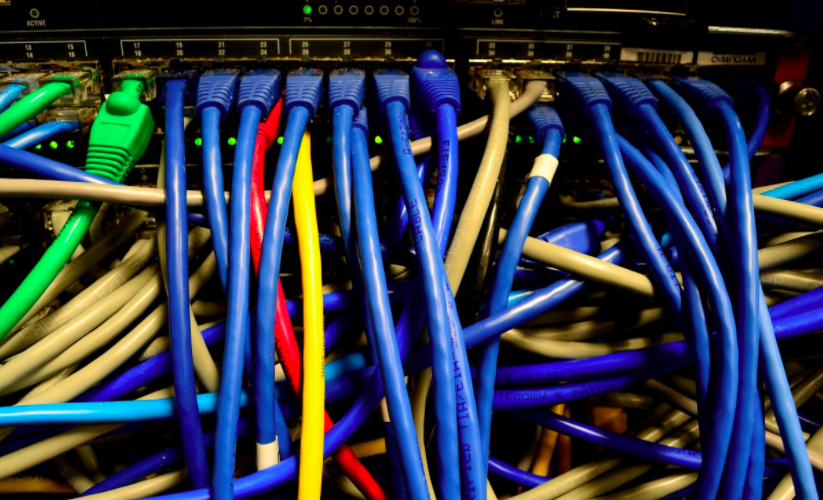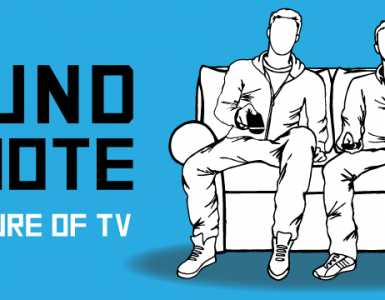The below is written by Drew Lipsher, Chief Strategy and Revenue Officer at Volta Industries. Lipsher is a media industry veteran of over two decades, who has held executive level roles at at Clear Channel, Intercope Geffen A&M Records, News Corp., BMG and Warner Music, and was Partner at New York’s Greycroft, investing in digital media companies.
Last week, Washington became the first state to pass a law protecting net neutrality, but the fate of an open internet for the rest of the country is still up in the air. As the debate heats up, the majority of conversations about the price of eliminating net neutrality are centered around how the costs will be passed onto consumers.
Net neutrality is the idea that ISPs should treat all internet traffic equally without blocking, slowing , or prioritizing any content delivery. Dismantling it would signal the rise of telecoms, who would rule by virtue of controlling access to the pipes that everyone’s content and data pass through.
Consumers are only one of many groups slated to be affected by this change. Content providers like Netflix, Hulu and other broadcast networks with OTT offerings will also bear the brunt of the cost. Companies that cater towards small businesses, including Etsy and Foursquare, recently filed a lawsuit to challenge the FCC decision, claiming they will be harmed if ISPs are able to charge a fee for users to visit sites at faster speeds.
Facebook, Google and Amazon have all released statements that the internet should function as a public right of way. This makes sense in principle and seems to have the consumer’s interest at heart, but the very architecture on which these companies built services and distribute content was established and is maintained by these telecom companies, thus creating this conundrum.
On the other hand, the telecoms of the world are already cashing in on the infrastructure they’ve built and could easily use the ruling as an opportunity to reap greater benefits. This is at odds with the interests of subscribers and consumer sentiment at large, which leans heavily against price increases for what many believe to be already expensive access fees and use taxes, and moves us further away from the notion of equal access.
So, what does this debate mean for internet companies, advertisers and consumers? Who are the winners and losers if net neutrality rules are rolled back?
What the Rollback of Net Neutrality Means for Brands and Advertisers
For advertisers, ad dollars will matter even more with the repeal of net neutrality, and could determine which brands come out on top. The rollback could limit the reach of brands, depending on how much they’re willing to pay to acquire users – kneecapping creativity and diversity in the ad market by creating an echo chamber for premium users doling out extra cash.
And if big brands continue to receive the most eyeballs, this could turn into a monopoly over internet properties. Many have warned the weakening or ending of net neutrality would hurt business in the long run, with startups like Snap claiming ISPs could favor rivals. In this case, young companies that pay for higher speeds would pass those costs onto consumers, making it harder for emerging players to compete.
Small businesses will also be hit hard, as their ad opportunities would become scarcer and more expensive. Independent media and publishers are also working on very thin profit margins, and could be hurt too. Gigi Sohn, Senior Counselor to former FCC Chairman Tom Wheeler sums it up: “There’s not going to be a long tail anymore. It’s just going to be a short, fat tail where those who can pay will pay.”
Why Consumers Will Suffer Most if Net Neutrality Is Rolled Back
Though voters can use their voice to call on local officials to reject the repeal, they don’t have much more to leverage in this debate. As a result, they’ll likely face its heftiest consequences.
Carriers could slow down or simply eliminate content, bringing an end to the democratic internet as we know it. Users will have no choice but to pay more for the same bandwidth and speed as they had before. If individuals aren’t willing or able to, they could lose control over what they see online altogether. At best, while consumers may maintain access to their favorite content or sites, the speed at which that information will be available will be much slower. Can anyone remember the old days of dial up services and 1200 baud modems?
Zero rating — a practice which allows ISPs to pick and choose which data counts towards bandwidth caps — could make obsolete entire classes of apps like music streaming by designating them not zero-rated, a step closer to total censorship.
In short: they’re doomed if they do and doomed if they don’t.
Net Neutrality Repeal Could Redirect Advertisers to More Traditional Platforms
Lately, lots of companies are publicly addressing Facebook and Google’s measurement snafus, citing transparency and fraud concerns, content adjacency issues and questionable ROI on significant ad spends. Procter & Gamble’s Mark Pritchard called out internet companies for spotty compliance standards and unreliable results, followed by a similar statement from Unilever’s marketing chief, who railed against divisive content and fake news. Both are now reevaluating ad spend and finding that cutting down on digital has its benefits.
Repealing net neutrality could also make video and content rich digital ads take longer to load, so it seems viable advertisers will seek new avenues that don’t require exorbitant fees or any degradation in quality of the brand (negative associations with a bad experience), encouraging a return to traditional platforms.
This turn of the tide could mean platforms like Volta’s free electric vehicle charging network — which offers a free service to communities and helps advertisers reach new audiences in high-traffic locations — will come to the fore.
Out-of-home and digital place-based media platforms don’t experience the same content adjacency, ad fraud and visibility issues as their internet counterparts, but can still deliver the measurement capabilities marketers want. In Volta’s case, it also benefits the consumer by offering a free service that is valuable to the community whether or not one drives and electric vehicle.
While the political debate on net neutrality continues, it’s clear consumers, small businesses and startups have the most to lose — whether they’re incurring higher fees for internet access, having the least lobbying power, or ultimately being at the mercy of ISPs and the large social and content platforms they visit everyday.




















